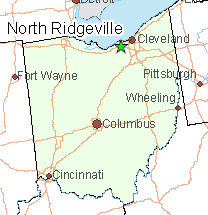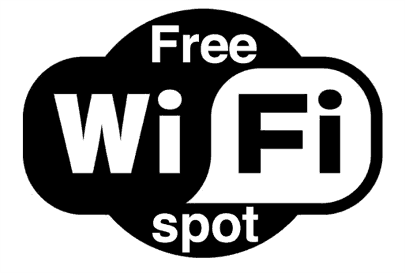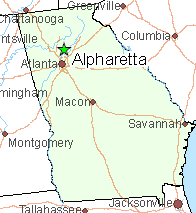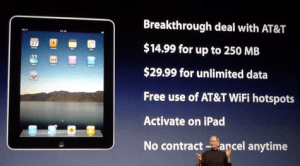
Efforts by local officials to attract more cable competition are paying off in suburban Cleveland, Ohio and Detroit, Mich. where customers will soon be able to choose between two cable companies or AT&T for cable service.
WOW!, a Denver-based cable overbuilder, has announced it will expand service to Lathrup Village, Mich. and Sheffield Lake, Brunswick, and North Ridgeville, Ohio between now and the middle of next year.
North Ridgeville City Council president Kevin Corcoran last week announced WOW! would begin head-to-head competition with Time Warner Cable starting in 2014. Corcoran told The Chronicle Telegram the city began looking for a competing cable provider after hearing complaints from residents about Time Warner Cable’s poor customer service and reliability. He approached WOW!, which has provided competitive service in parts of the greater Cleveland area, about expanding in North Ridgeville.
 “My only pitch was that people are dying for some competition,” Corcoran told the newspaper.
“My only pitch was that people are dying for some competition,” Corcoran told the newspaper.
Corcoran met informally with WOW! officials to discuss the prospects of expanding into North Ridgeville before more formal meetings were held with city officials including the mayor and the safety-service director.
Making life easier for WOW!’s entry is the presence of existing utility easements, which means WOW! can run cable on existing utility poles without formal approval by the city council. But WOW! will still need certain permits from the Building Department to move forward with wiring. The company will use Ohio’s statewide video franchising law, originally pushed by AT&T for U-verse, to obtain video service permits and a franchise agreement with the Ohio Department of Commerce.
WOW!’s regular prices are much lower than Time Warner Cable’s promotional prices for new customers:
- Standard triple play (15/1Mbps Internet, Cable TV, phone) costs $105.98/month from Time Warner ($118.97 with DVR), $85/month from WOW! ($92 with DVR);
- Standard double play (15/1Mbps Internet, Cable TV) still costs $105.98/month from Time Warner ($118.98 with DCR), $75/month from WOW! ($82 with DVR);
- Internet-only service (15/1Mbps) costs $40.98/month from Time Warner Cable, $30/month from WOW! (promotional pricing expires after 12 months).
Time Warner Cable said it welcomes the competition.
NORTH RIDGEVILLE – Residents who have long griped about poor cable television service can look forward to some competition next year.
City Council President Kevin Corcoran on Friday that
WOW! Cable TV is planning to begin giving Time Warner Cable, the city’s current cable TV provider, some competition starting in 2014.Talks between the city and WOW! Cable began in late summer and continued into September where the company announced it would go ahead with plans to begin offering digital and HDTV cable service to residents next year.
WOW! Cable’s Matthew Harper, who serves as the company’s systems manager for the Cleveland market, confirmed the Denver-based firm’s plans to begin serving a portion of the city by the end of 2014.
“We’re in the process of doing a walk-out, which involves gathering information about the number of (utility) poles and distances between them, and the number of homes we are able to get built out for next year,” Harper said. “Our goal is to build out the entire city over the next few years.”
Because the company will use existing utility easements to run wiring over utility poles, its plans do not require formal approval by City Council, according to both Corcoran and Harper.
Permits for construction of equipment and attaching wiring to power poles will need to be obtained from the city Building Department.
WOW! Cable will obtain required video service and state franchise agreements through the Ohio Department of Commerce, Harper said.
Under the firm’s universal pricing structure, North Ridgeville customers can expect to pay $60 a month for any two services such as cable TV and phone service, or $70 a month for three services including cable TV, phone, and high-speed Internet service, according to Harper.
More specific details and pricing for the company’s numerous packages of services can be found at www.wowway.com, Harper said.
Wow! Cable currently serves about 4,300 customers in AvonLake, and just completed work on a system to serve SheffieldLake, Harper said.
Cost figures for the North Ridgeville project were not disclosed.
Corcoran said he began to investigate prospects for bringing another cable TV provider to town after he and others heard periodic complaints from residents about the cable TV service they had from Time Warner.
“We’d heard that Time Warner doesn’t always have the greatest reputation for customer service and reliability, and that people were going off to Dish and DirecTV,” Corcoran said. “My only pitch was that people are dying for some competition.”
Realizing that “a lot of people like to stick with cable for various reasons,” Corcoran met informally with WOW! officials before more formal meetings were held with city officials including Mayor David Gillock and Safety-Service Director Jeffry Armbruster.
Time Warner spokesman Mike Pedelty said the company has been aware of WOW! Cable’s plans to enter North Ridgeville.
“We are well aware of them coming in and compete with them in other locations,” Pedelty said.
When asked about Corcoran’s comments concerning Time Warner’s poor service, Pedelty said “it’s hard to respond to that comment.”
“We respect all competitors, but are really driven by making sure we provide the type of services our customers expect at a good value,” he said.
– See more at: http://www.chroniclet.com/2013/10/11/new-cable-company-offering-service-in-north-ridgeville-in-2014/#sthash.L6ciWB1H.dpuf


 Subscribe
Subscribe A new research report issued by Time Warner Cable concludes cell phone companies like AT&T and Verizon Wireless cannot meet the future data demands of customers over their 4G LTE wireless networks without punitive usage caps and high fees to deter usage, even with new spectrum becoming available for the wireless industry’s use.
A new research report issued by Time Warner Cable concludes cell phone companies like AT&T and Verizon Wireless cannot meet the future data demands of customers over their 4G LTE wireless networks without punitive usage caps and high fees to deter usage, even with new spectrum becoming available for the wireless industry’s use. “Given a choice, more than 80 percent of tablet, laptop, and eReader owners would either prefer Wi-Fi to mobile access, or have no preference,” Cisco concluded. “And, just over half of smartphone owners would prefer to use Wi-Fi, or are ambivalent about the two access networks.”
“Given a choice, more than 80 percent of tablet, laptop, and eReader owners would either prefer Wi-Fi to mobile access, or have no preference,” Cisco concluded. “And, just over half of smartphone owners would prefer to use Wi-Fi, or are ambivalent about the two access networks.”
 Frontier Communications is interested in buying landlines bigger phone companies like AT&T and Verizon might want to sell.
Frontier Communications is interested in buying landlines bigger phone companies like AT&T and Verizon might want to sell.

 Georgia’s first gigabit fiberhood will serve residents of a luxury $600 million development now under construction in an Atlanta suburb.
Georgia’s first gigabit fiberhood will serve residents of a luxury $600 million development now under construction in an Atlanta suburb. “This is a game-changer for Alpharetta,” said Alpharetta mayor David Belle Isle. “Nowhere else in Georgia can you get gigabit service to your home and nowhere else but Alpharetta can a business take advantage of this cost-effective way to future-proof their operations.”
“This is a game-changer for Alpharetta,” said Alpharetta mayor David Belle Isle. “Nowhere else in Georgia can you get gigabit service to your home and nowhere else but Alpharetta can a business take advantage of this cost-effective way to future-proof their operations.”
